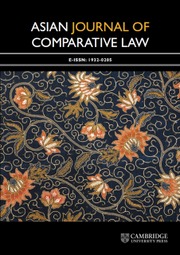Exclusion from Public Space
A Comparative Constitutional Analysis
Part of Cambridge Studies in International and Comparative Law
- Author: Daniel Moeckli, Universität Zürich
- Date Published: December 2018
- availability: Available
- format: Paperback
- isbn: 9781316608296
Paperback
Other available formats:
Hardback, eBook
Looking for an inspection copy?
Please email [email protected] to enquire about an inspection copy of this book
-
Hardly known twenty years ago, exclusion from public space has today become a standard tool of state intervention. Every year, tens of thousands of homeless individuals, drug addicts, teenagers, protesters and others are banned from parts of public space. The rise of exclusion measures is characteristic of two broader developments that have profoundly transformed public space in recent years: the privatisation of public space, and its increased control in the 'security society'. Despite the fundamental problems it raises, exclusion from public space has received hardly any attention from legal scholars. This book addresses this gap and comprehensively explores the implications that this new form of intervention has for the constitutional essentials of liberal democracy: the rule of law, fundamental rights, and democracy. To do so, it analyses legal developments in three liberal democracies that have been at the forefront of promoting exclusion measures: the United Kingdom, the United States, and Switzerland.
Customer reviews
Not yet reviewed
Be the first to review
Review was not posted due to profanity
×Product details
- Date Published: December 2018
- format: Paperback
- isbn: 9781316608296
- length: 569 pages
- dimensions: 230 x 153 x 30 mm
- weight: 0.9kg
- availability: Available
Table of Contents
Summary contents
Contents
Abbreviations
1. Introduction:
1.1 Exclusion from public space and its challenges to liberal democracy
1.2 Methodology
1.3 Scope of research
1.4 Language and terminology
1.5 Structure of the study
2. Public Space and its Transformation:
2.1 The definition of 'public space' and related concepts
2.2 Historical background
2.3 The importance of public space
2.4 Regulation of the use of public spac
2.5 The transformation of public space
2.6 Conclusion
3. Exclusion from Public Space:
3.1 Historical background: the decline of banishment
3.2 The resurgence of exclusion
3.3 The targets of exclusio
3.4 A typology of exclusion measures
3.5 Conclusion
4. Rule of Law:
4.1 The rule of law/Rechtsstaatsprinzip
4.2 Principle of legality
4.3 Requirement of sufficient precision
4.4 Procedural safeguards and access to justice
4.5 Conclusion
5. Fundamental Rights: Liberty:
5.1 Fundamental and human rights
5.2 Scope of protection
5.3 Limitations
5.4 Conclusion
6. Fundamental Rights: Equality:
6.1 The right to equality and non-discrimination
6.2 Exclusion from public space and the right to equality and non-discrimination
6.3 Conclusion
7. Democracy:
7.1 Democracy
7.2 The democratic legitimacy of exclusion measures
7.3 The consequences of exclusion measures for democracy
7.4 Conclusion
8. A Right (of Access) to Public Space?:
8.1 'Reclaiming public space'?
8.2 De lege lata: is there a right to public space?
8.3 De lege ferenda: is there a need for a right to public space?
8.4 Conclusion
9. Synthesis:
9.1 Conclusion: exclusion measures in conflict with liberal democracy
9.2 Outlook: the importance of civic responsibility
Bibliography
Annex I. Overview of the most important exclusion norms
Annex II. Typology of exclusion norms.
Sorry, this resource is locked
Please register or sign in to request access. If you are having problems accessing these resources please email [email protected]
Register Sign in» Proceed
You are now leaving the Cambridge University Press website. Your eBook purchase and download will be completed by our partner www.ebooks.com. Please see the permission section of the www.ebooks.com catalogue page for details of the print & copy limits on our eBooks.
Continue ×Are you sure you want to delete your account?
This cannot be undone.
Thank you for your feedback which will help us improve our service.
If you requested a response, we will make sure to get back to you shortly.
×
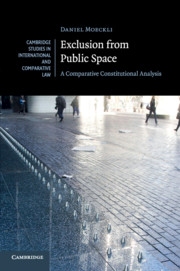
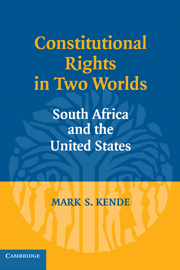
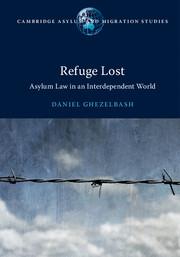
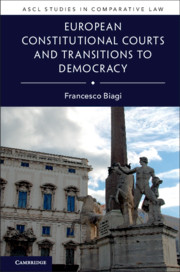
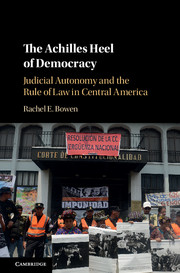
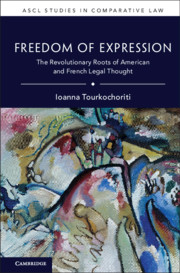
.jpg)
